Top 5 Highlights on the West Highland Way
By Mark Wright
The West Highland Way is one of the most iconic trails in the country and something every keen walker should experience. To help whet your appetite here are our top 5 highlights on the 95 mile trail from Milngavie to Fort William.
Conic Hill
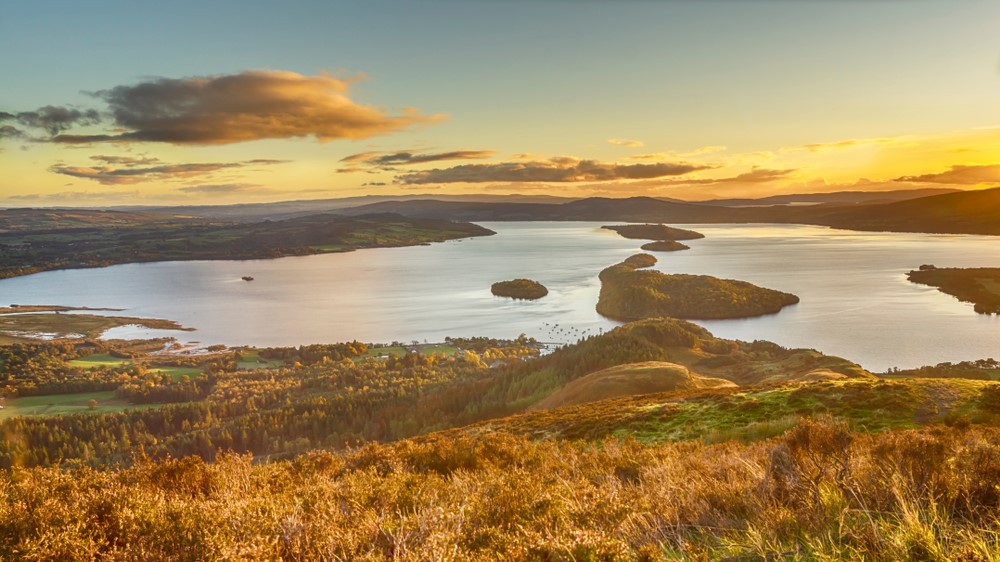
Between Drymen and Balmaha lies Conic Hill. At just 361m/1148ft it’s by no means a giant, however having made the short steep climb to the summit you are rewarded with the most outstanding views of Loch Lomond.
Measuring 23 miles long, Loch Lomond is the largest body of fresh water in Britain. The line of small islands along the loch mark the direction of the Highland Boundary Fault and the start of the Scottish Highlands.
Both Ben Lomond and the Arrochar Alps can be admired from this stunning little viewpoint.
Falls of Falloch
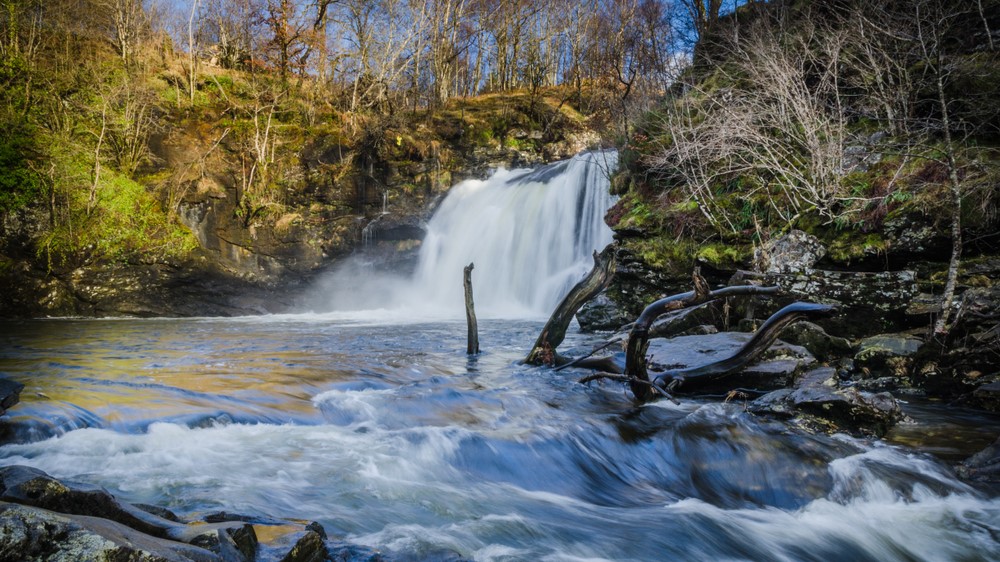
When walking between Inverarnan and Tyndrum, a short detour will reward you with fabulous views of the Falls of Falloch. Easily accessible, it’s a popular beauty spot and a great place for walkers to stop and enjoy a snack.
The River Falloch falls in a single 10m drop and despite it’s relatively modest size, it’s an impressive sight, particularly when in spate. Sit long enough and you might just see a kayaker attempting the descent.
The Woven Sound is a shelter constructed from intricately woven-together steel rods that weaves its way between existing trees and allows a closer view of the falls. The installation features an entry from the diary of Dorothy Wordsworth, sister of William Wordsworth, who visited the falls along with Samuel Taylor Coleridge.
Buachaille Etive Mòr
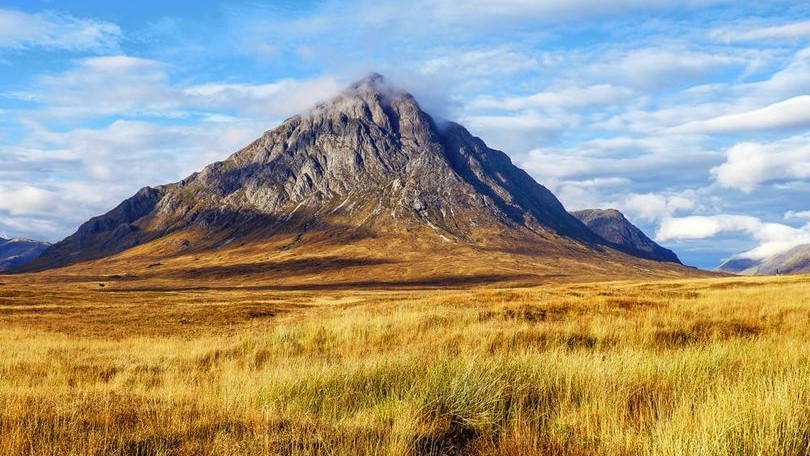
The magnificent Buachaille Etive Mòr is one of the most recognisable mountains in Scotland. The classic view as seen from the Kings House Hotel is perhaps one of the most photographed sights on the West Highland Way.
The pyramid like shape first comes into view as you cross Rannoch Moor in the direction of Glen Coe, but it’s when leaving King’s House and heading for the Devil’s Staircase that the full majesty of the mountain known to climbers simply as The Buachaille, is truly revealed.
Film fans will recognise this stunning scenery from the 2012 release Skyfall where 007 played by Daniel Craig returns to his Scottish roots.
The Devil’s Staircase
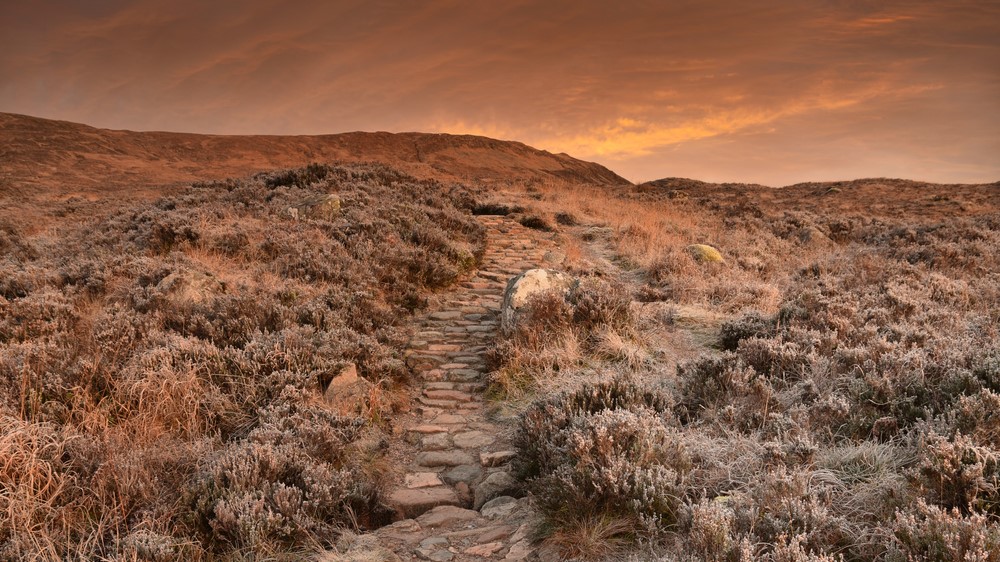
To cross from Kingshouse over to Kinlochleven walkers must climb the Devil’s Staircase. Despite its daunting name this is one of the most popular sections of the West Highland Way.
Originally a drove road the Devil’s Staircase is part of the Military Road between Tyndrum and Fort William, built in 1752 by General Caulfield. It’s believed it was given its name by the soldiers who were part of the road building. At 550m/1804ft it’s the highest point on the Way.
When climbing the steep zigzag path take time to savour the views of Rannoch Moor and the surrounding mountains.
Once at the top you’re on the edge of the iconic Aonach Eagach Ridge. There are fine views of Glen Coe. On a clear day you can see Ben Nevis and the Mamore mountains.
Glen Nevis
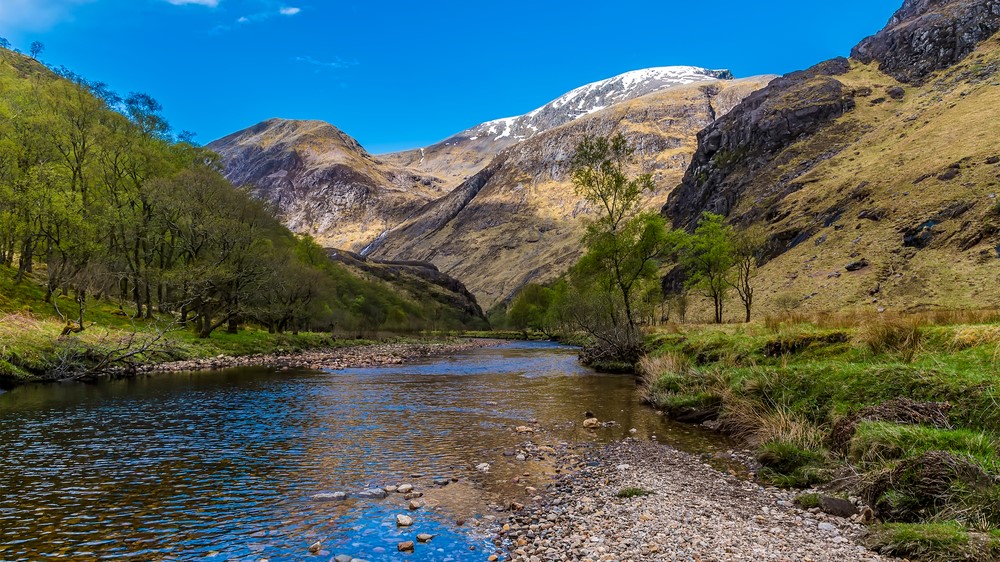
The final stage of the West Highland Way sees walkers journey from Kinlochleven to Fort William through the incredibly picturesque Glen Nevis. The glen has several spectacular waterfalls flowing into the River Nevis, most notably Steall Falls.
At the foot of Ben Nevis, Britain’s highest mountain, Glen Nevis is regarded as one of the finest examples of a glaciated valley in Scotland. The scenic beauty of the glen has contributed to Ben Nevis and Glen Coe being recognised as a National Scenic Area. NSAs are generally equivalent to the Areas of Outstanding Natural Beauty found in England, Wales and Northern Ireland.
A number of famous films have used the valley as a filming location, among them Braveheart, Highlander, Rob Roy and even Harry Potter.
For more information on our West Highland Way holidays take a look here, email us [email protected] or call us on 017687 72335 to speak with one of our walking holiday experts.